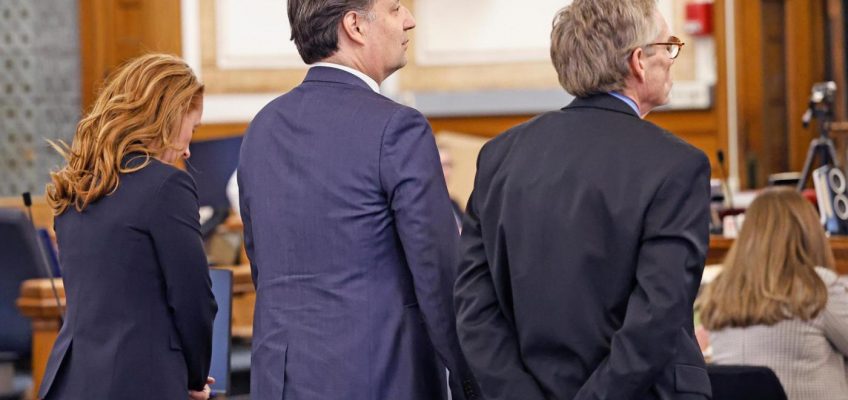Yes the darkest day of the year is here, but that means brighter days are ahead.
Related Articles
Brian Walshe is sentenced to life in prison for the murder of his wife, whose body was never found
Today in History: December 18, U.S. troops leave Iraq
Reiner family tragedy sheds light on pain of families grappling with addiction
US government admits negligence in helicopter-plane collision that killed 67 in Washington
FAA investigating after small plane crashes into New Hampshire condominiums
Sunday is the shortest day of the year north of the equator, where the solstice marks the start of astronomical winter. It’s the opposite in the Southern Hemisphere, where it is the longest day of the year and summer will start.
The word “solstice” comes from the Latin words “sol” for sun and “stitium” which can mean “pause” or “stop.” The solstice is an end of the sun’s annual march higher or lower in the sky. The winter solstice is when the sun makes its shortest, lowest arc. The good news for sun lovers: It then starts climbing again and days will get a little longer every day until late June.
People have marked solstices for eons with celebrations and monuments such as Stonehenge, which was designed to align with the sun’s paths at the solstices. But what is happening in the heavens? Here’s what to know about the Earth’s orbit.
What is the solstice?
As the Earth travels around the sun, it does so at an angle, making the sun’s warmth and light fall unequally on the northern and southern halves of the planet for most of the year.
The solstices mark the times when the Earth’s tilt toward or away from the sun is at its maximum. This means the hemispheres are getting very different amounts of sunlight — and days and nights are at their most unequal.
At the Northern Hemisphere’s winter solstice the upper half of the Earth is at its furthest lean away from the sun — leading to the shortest day and longest night of the year. The winter solstice falls can fall between Dec. 20 and 23 — this year it’s the 21st.
The opposite happens at a Northern Hemisphere summer solstice: The upper half of the Earth is leaning toward the sun, creating the longest day and shortest night of the year. This solstice falls between June 20 and 22.
What is the equinox?
During the equinox, the Earth’s axis and its orbit align so that both hemispheres get an equal amount of sunlight.
Aymara Indigenous people hold up their hands to receive the first rays of sunlight in celebration of the Andean New Year 5533, marking the Southern Hemisphere’s winter solstice, in El Alto, Bolivia, June 21, 2025. (AP Photo/Juan Karita, File)
The word equinox comes from two Latin words meaning equal and night. That’s because on the equinox, day and night last almost the same amount of time — though one may get a few extra minutes, depending on where you are on the planet.oo
The Northern Hemisphere’s fall — or autumnal — equinox can land between Sept. 21 and 24, depending on the year. Its spring — or vernal — equinox can land between March 19 and 21.
What’s the difference between meteorological and astronomical seasons?
These are just two different ways to carve up the year.
While astronomical seasons depend on how the Earth moves around the sun, meteorological seasons are defined by the weather. Meteorologists break down the year into three-month seasons based on annual temperature cycles. By that calendar, spring starts on March 1, summer on June 1, fall on Sept. 1 and winter on Dec. 1.
The Associated Press Health and Science Department receives support from the Howard Hughes Medical Institute’s Department of Science Education and the Robert Wood Johnson Foundation. The AP is solely responsible for all content.




